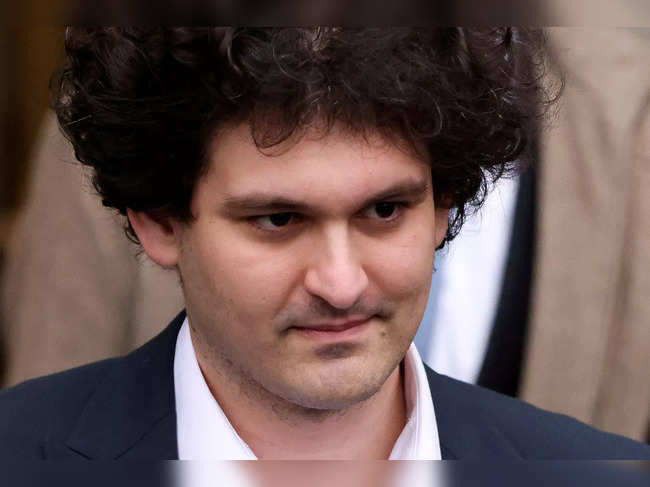 Reuters
ReutersSo the son of two Stanford Law School professors quit his Wall Street job and in 2017 started a cryptocurrency hedge fund, setting off a sequence of events that culminate on Tuesday in his trial for what federal prosecutors have called one of the biggest financial frauds in US history.
Elevate Your Tech Prowess with High-Value Skill Courses
| Offering College | Course | Website |
|---|---|---|
| Indian School of Business | ISB Digital Marketing and Analytics | Visit |
| Northwestern University | Kellogg Post Graduate Certificate in Product Management | Visit |
| Northwestern University | Kellogg Post Graduate Certificate in Digital Marketing | Visit |
| Indian School of Business | ISB Product Management | Visit |
He parlayed his wealth into political clout, becoming one of the biggest donors to Democratic candidates and causes ahead of the 2022 US midterm elections. Based in the Bahamas, Bankman-Fried became known for his mop of unkempt curly hair and for wearing rumpled shorts, even when entertaining dignitaries like Bill Clinton.
In a cryptocurrency sector plagued by hacks and money laundering, Bankman-Fried hired celebrities including NFL quarterback Tom Brady and comedian Larry David to feature in advertisements portraying FTX as safe. He publicly backed efforts to regulate crypto.
But prosecutors say his laid-back demeanor combined with his cultivation of a responsible image concealed his years-long embezzlement of customer funds. They contend the theft came to a head in 2022, when crypto prices swooned and he used FTX funds to plug losses at Alameda.
Discover the stories of your interest

Asked by a reporter after Bankman-Fried was arrested whether his casual appearance and him being "incredibly bright" had helped him fool people, Manhattan US Attorney Damian Williams responded, "You can commit fraud in shorts and T-shirts in the sun."
Bankman-Fried, a Massachusetts Institute of Technology graduate, has pleaded not guilty to seven counts of fraud and conspiracy. He has acknowledged inadequate risk management but denied stealing funds.
Bankman-Fried, now 31, worked 18-hour days while building FTX, but by 2022 was spending more time talking with policymakers, working on branding and partnerships, and managing the exchange's growing workforce, according to testimony he intended to give to Congress for a hearing over now-bankrupt FTX's November 2022 collapse.
"I thought that I could hold FTX together despite the expansion," he wrote in the planned testimony published by Forbes and confirmed by Bankman-Fried as authentic. "I was wrong. I bit off more than I could chew." He was arrested at his luxury apartment in the Bahamas the day before his scheduled testimony, locked up at the country's Fox Hill Prison for 10 days, then extradited to the US.
Bankman-Fried may blame colleagues
Bankman-Fried had little crypto experience before founding Alameda, which initially made money by exploiting differences in prices in digital tokens between the United States and Asia. A physics major at MIT, he told an FTX podcast that he did not apply himself in classes and did not know what to do with his life for most of college.
But he grew interested during those years in a movement known as effective altruism, which encourages talented young people looking to make a mark on the world to focus on earning money and giving it away to worthy causes. That led him to take a job as a quantitative trader at Jane Street, but he began to doubt whether he was earning all he could.
"If I really think that I should be trying to maximize expected values, that probably implies substantially riskier strategies than what seems intuitively right," he said in the June 4, 2020, podcast. "I should be careful not to fall prey to trying to choose a comfortable path."
He brought on Gary Wang, an old friend from math camp, and later Caroline Ellison, a fellow effective altruist from Jane Street. Both would join him in the Bahamas, where they shared a $30 million penthouse with other Alameda and FTX executives, including Nishad Singh.
Ellison, Wang, and Singh have all pleaded guilty and are set to testify against their former boss at trial. Bankman-Fried's lawyers have signaled that they plan to challenge their credibility, and will seek to distance the defendant from the day-to-day operations that landed his companies in dire straits.
"His lawyers will certainly ask the cooperating witnesses questions about his personality and his attention to detail that will try to support the idea that he was relying on other people," said Rebecca Mermelstein, a former federal prosecutor and now a partner at O'Melveny.
But if evidence were to emerge that Bankman-Fried had discussions with the cooperating witnesses about hiding what they were doing, it would undermine that argument, Mermelstein said.
Prosecutors have said Bankman-Fried instructed colleagues to ensure messages between them auto-deleted because legal cases often rest on documentary evidence. He has denied that. Since mid-August, Bankman-Fried has been preparing for trial from behind bars, after U.S. District Judge Lewis Kaplan revoked his bail for likely trying to tamper with witnesses at least twice - including by sharing Ellison's private writings with a New York Times reporter. Bankman-Fried and Ellison were on-and-off romantic partners.
His law professor parents, who have now watched their son be remanded to jail at courtrooms in the Bahamas and Manhattan, were themselves sued on Sept. 19 by FTX's post-bankruptcy management for enriching themselves at customers' expense - which they denied.
"There will probably never be anything I can do to make my lifetime impact net positive," Bankman-Fried said in his own private writings following his arrest, which he shared with a social media influencer who gave them to the Times. "And the truth is that I did what I thought was right."














 Get Unlimited Access to The Economic Times
Get Unlimited Access to The Economic Times

